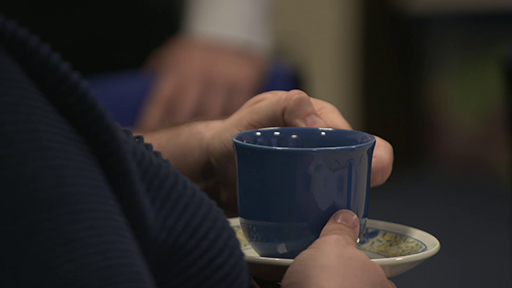Scenario 3: Negativity
In this video the educator is facilitating a session in which the group share their DAFNE diaries. In this session individuals are reflecting on their own application of DAFNE principles of CP estimation and insulin dose adjustment. They are looking for patterns in their Glucose to help them problem solve, make decisions and action plan for any changes they would like to make. The session is key to the DAFNE course and provides opportunities for modelling, mastery, reflection, experimentation and peer learning.
Activity 13: Negativity
Part 1

Transcript
Which educator behaviours can you observe to manage the challenging behaviour, focus on the positives and involve the group?
If you need to refresh your memory about educator behaviours refer to ‘Educator behaviours that demonstrate the DAFNE philosophy [Tip: hold Ctrl and click a link to open it in a new tab. (Hide tip)] ’, which is available in the resources area
Record your observations in your workshop pack.
Reflect on what you have observed. What will be different for you when you are in the room delivering face-to-face DAFNE courses? What might you have done differently? Record your reflections in your workshop pack.
Bring your observations and reflections to the workshop. You will have an opportunity to discuss them there.
Teaching tip
As in Remote DAFNE, for many people with type 1 diabetes, a face-to-face DAFNE course is the first opportunity they have had to spend time with a group of people who share their experience of living with type 1 diabetes. There can therefore be a strong need to share.
Some educators feel that the time allocated to deliver DAFNE sessions is longer than that required to deliver the content. Remember: session delivery is not just about covering the content. It is about allowing people to share their experiences, and to support and learn from each other.
Many people with type 1 diabetes have maintained a level of Glucose management that they find acceptable with little support or input from healthcare professionals. Presenting them with a new way of managing their Glucose can seem like a criticism of past practices. People can be afraid to change what they perceive has worked for them for a long time. You may find face-to-face facilitation more challenging because the feeling and emotions of group members may have a more direct effect on the group, on you, and on the atmosphere in the room.
A non-judgemental approach is key to keeping teaching of DAFNE principles neutral and not personal. It is important to explain that DAFNE is just a different set of tools for managing Glucose. As in all areas of life, innovation gives us choices that have associated benefits. Trying a different approach is not a one-way process – they can always go back.
Scenario 2: Talkativeness



